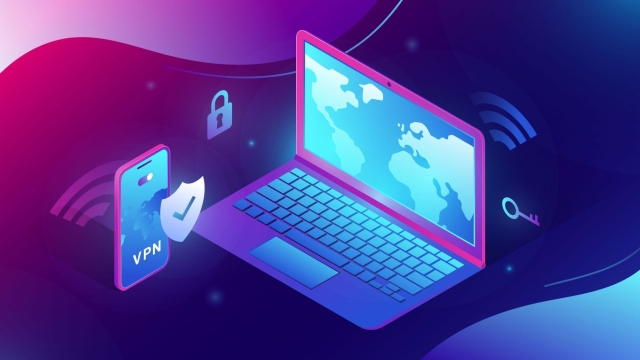Unveiling the Enigmatic World of VPNs: A Comprehensive Guide


Welcome to the mysterious realm of VPNs, where invisible connections and digital cloak-and-dagger unfold in the virtual landscape. VPNs, short for Virtual Private Networks, serve as the modern-day guardians of online privacy and security, allowing users to navigate the vast cyberspace with anonymity and peace of mind. As we delve deeper into the enigmatic world of VPNs, we unravel the layers of encryption, tunneling protocols, and virtual location masking that shape these digital gateways. VPNs have become indispensable tools for safeguarding sensitive data, evading censorship, and transcending geographical barriers in today’s interconnected digital environment.
Types of VPNs
When it comes to VPNs, there are primarily two main types: remote access VPNs and site-to-site VPNs. Remote access VPNs allow individual users to connect to a private network from a remote location, providing a secure way to access resources. On the other hand, site-to-site VPNs are used to connect multiple offices or networks together over the internet, creating a secure and encrypted connection between them.
Another type of VPN is the SSL VPN, which provides secure remote access through a web browser using SSL/TLS encryption protocols. SSL VPNs are commonly used for secure access to web applications and other online services. This type of VPN offers flexibility and ease of use for users who need to securely connect to resources from different locations.
In addition to these, there are also specialized VPN services such as double VPNs, which route traffic through multiple VPN servers for enhanced security and privacy, and dedicated IP VPNs, which provide users with a static IP address for specific needs. These variations cater to specific requirements and preferences of users seeking different levels of anonymity and security.
Benefits of Using a VPN
-
Enhanced Security: Using a VPN encrypts your online activities, making it difficult for hackers and third parties to intercept your data. This ensures a secure connection, especially when accessing public Wi-Fi networks.
-
Privacy Protection: By masking your IP address, a VPN helps to maintain your online privacy. It prevents websites and online services from tracking your browsing habits, ensuring that your personal information remains private.
-
Access to Restricted Content: With a VPN, you can bypass geo-blocks and access content that may be restricted in your region. This allows you to stream your favorite shows, access websites, and use online services that may otherwise be unavailable to you.
Choosing the Right VPN
When selecting a VPN, it’s crucial to consider the level of security it offers. Look for features like strong encryption protocols, a no-logs policy, and a kill switch to ensure your online activities remain private and secure.
Speed is another key factor to keep in mind when choosing a VPN. Opt for a provider that offers fast connection speeds with minimal impact on your browsing experience. This is especially important for activities like streaming or online gaming.
Best Vpn Sites
Lastly, take into account the server network of the VPN you’re considering. A wide range of server locations can provide greater versatility and access to geo-restricted content. Check if the VPN has servers in locations that are important to you for a seamless browsing experience.